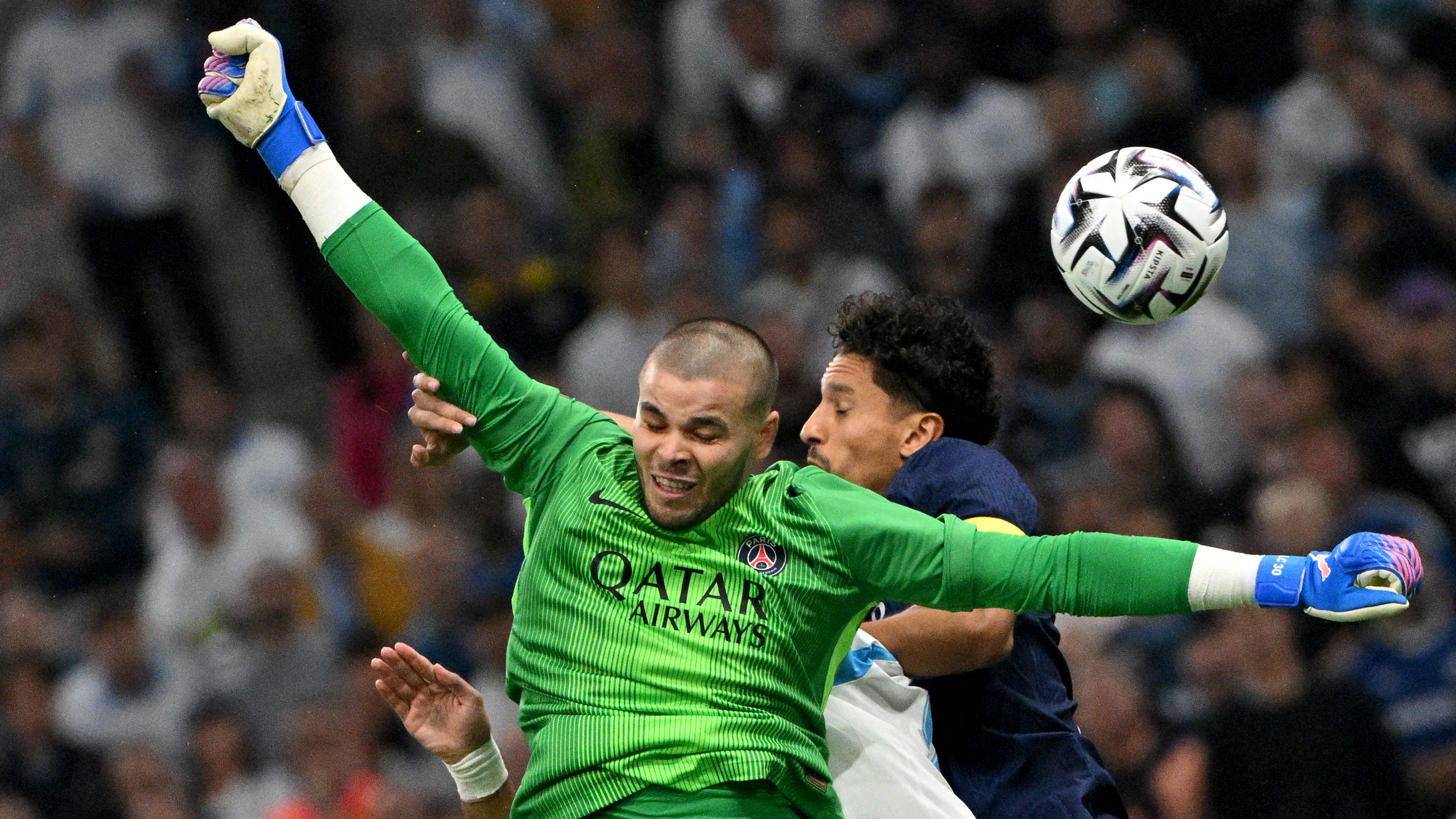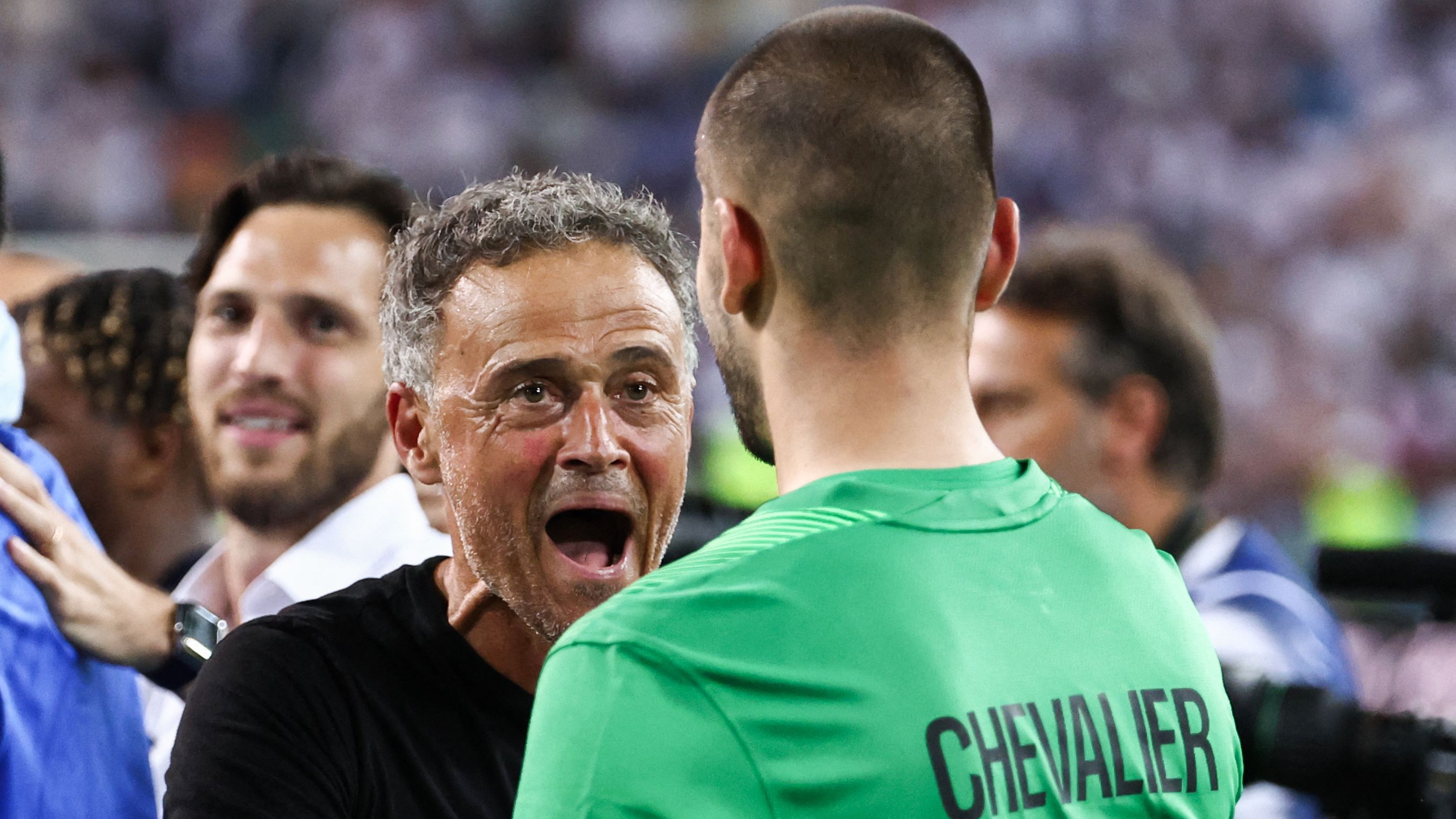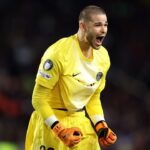Lucas Chevalier’s High-Pressure Transition to PSG After Succeeding Donnarumma
Lucas Chevalier has stepped into the demanding role at Paris Saint-Germain, facing immense scrutiny as the new primary goalkeeper following his high-profile move from Lille. As he navigates the expectations of playing for one of Europe’s elite clubs, the young shot-stopper must prove himself amid comparisons to his predecessor, all while aiming to solidify his place in the team’s long-term plans.
PSG’s Ambitious Acquisition of a New Goalkeeper Talent
In a surprising market decision during the summer transfer window, Paris Saint-Germain secured Lucas Chevalier from Lille for a substantial €40 million fee, equivalent to about £34 million or $47m. This bold step came after the club signaled to Gianluigi Donnarumma that he was no longer the preferred option, with manager Luis Enrique seeking a goalkeeper whose style aligned better with his tactical vision. Consequently, Donnarumma moved on to Manchester City in the Premier League, opening the door for Chevalier to take center stage.
Early Season Struggles for the New Starter
Heading into the 2025-26 campaign as Luis Enrique’s clear first-choice keeper, Lucas Chevalier has encountered hurdles that highlight areas for growth. While the ex-Lille standout has displayed potential, there have been noticeable slips in focus and judgment, emphasizing the importance of gaining more experience to meet the demands of a top-tier outfit like PSG.
Key Moments of Weakness on the Pitch
One glaring instance occurred at the Stade Velodrome during PSG’s narrow 1-0 defeat to Marseille in September, where Chevalier’s mishandling of a cross from the flank allowed Nayef Aguerd to net an unchallenged header. Positioned poorly with his back partially turned and arm extended ineffectively, the error quickly disrupted PSG’s rhythm, enabling Marseille to control the game’s flow from the outset.
Chevalier’s difficulties extended beyond that fixture, as seen in the 3-3 stalemate against Strasbourg, where his missteps left the defense vulnerable at pivotal times. This drew sharp rebukes from former French goalkeeper Lionel Charbonnier, who lambasted the performances.
Expert Critique and Analysis
“He’s falling short of what’s needed. He didn’t handle his duties effectively. For the initial goal, it seemed like a tough aerial challenge, but upon review, he was retreating instead of advancing,” Charbonnier explained to RMC Sport following the loss to Roberto De Zerbi’s team. “That backward lean makes his jump ineffective, which is simply not acceptable. On the next score, his attempt to extend was thwarted by his boots digging into the ground. Right now, the role appears overwhelming for Chevalier. Looking at his Lille days, those goals wouldn’t have slipped through. He comes across as undersized, making the net seem vast, and he lacks the commanding presence for now. Still, he’s got potential-he just needs time to develop.”
Adapting to Life Under the Spotlight at PSG
In an interview with Le Figaro, Lucas Chevalier opened up about his ongoing adjustment to the intense environment at PSG. “Every move is under a microscope; you can’t slip up-you need to perform flawlessly from day one,” he shared. “They’re always hunting for flaws… Solid play is just the baseline, while any dip gets magnified. But in the end, it’s motivating to face that pressure right away. At PSG, outstanding efforts elevate you far beyond what I experienced at Lille, yet any shortfall buries you completely.”
“I’m settling in more comfortably now. My integration sped up in the final weeks before the move, and we dove straight into prep for the European Super Cup against Tottenham. The initial period, especially the first month or so, felt disjointed. I was living out of a hotel, and I’m someone who thrives on routine and structure, so it was chaotic at first. Overall, the start was tough, but I’m finally establishing a steady rhythm, both in training at the club and in my personal life.”
Luis Enrique’s Strong Support Amid Growing Pains
Before PSG’s matchup with Bayer Leverkusen last month, Luis Enrique publicly backed Lucas Chevalier, dismissing doubts about his ability. “It’s the same story annually; I’m thoroughly pleased with his progress. I’m extremely content with Lucas Chevalier-he ranks among the top choices, or perhaps the absolute best. His on-field efforts have been impressive, and when we bring in a player, it’s with a long-term vision in mind.”
“What stands out about Lucas is his character and skill level. We’re fully convinced he’ll play a pivotal role for us over the coming years. That’s the faith we have in him, and from my perspective, his showings in recent games align with what I’m looking for-that’s all that matters to me.”
Addressing Media Scrutiny and Precedent
Luis Enrique also took issue with how the media has treated both Chevalier and his predecessor. He pointed out that Donnarumma endured heavy criticism during his PSG tenure, viewing such pressure as an unavoidable part of representing a powerhouse like the French giants.
“He possesses real grit, evident in practices and games. What I appreciate… I doubt you recall how relentlessly you targeted Gigio Donnarumma over the years. I remember it vividly! For the past four years, you tore him apart on the pitch. So, please… even before I coached Paris Saint-Germain, I noticed the constant barrage against Gigio. As a goalkeeper for a giant like PSG, you must learn to endure that kind of attention.”



The Rise of Lucas Chevalier at PSG
Background on Lucas Chevalier
Lucas Chevalier, a promising young goalkeeper from France, has quickly become a focal point in European football discussions. Born in 2002, Chevalier honed his skills in the youth academies of Lille OSC, where he demonstrated exceptional talent early on. His journey to Paris Saint-Germain (PSG) represents a significant leap, especially as he steps into the spotlight following the departure or injury of established stars. Keywords like “Lucas Chevalier PSG” highlight the growing interest in his career, as fans and analysts search for updates on this emerging talent.
Chevalier’s style is characterized by quick reflexes, strong distribution skills, and a commanding presence in the box-attributes that have drawn comparisons to top goalkeepers. Before his potential move to PSG, he played a key role in Lille’s defensive setups, contributing to clean sheets and impressive saves in Ligue 1 matches. This transition underscores the high stakes in modern football, where young players like Chevalier must adapt to “PSG goalkeeper pressure” almost overnight.
Stepping into Donnarumma’s Shoes
Replacing a Champions League winner like Gianluigi Donnarumma is no small feat, and Lucas Chevalier has openly discussed the challenges involved. Donnarumma, an Italian international, has a storied career with accolades including the UEFA Champions League title with AC Milan and key performances for PSG. His ability to handle high-pressure situations, such as penalty shootouts and crucial group stage matches, has set a benchmark for goalkeepers in the squad.
For Chevalier, this means inheriting not just a position but a legacy. In recent interviews, he’s acknowledged the “immense pressure at PSG” as he aims to fill the void left by Donnarumma. This shift highlights themes like “replacing Champions League winners” and the mental fortitude required in elite clubs. Chevalier’s adaptation involves rigorous training and tactical adjustments, focusing on maintaining composure during high-stakes games like those in the UEFA Champions League or Ligue 1 derbies.
Chevalier’s Statements and Experiences
In various media appearances, Lucas Chevalier has been candid about the psychological demands of his role. He described the pressure as “overwhelming at first,” emphasizing how the expectations from fans and coaches amplify every mistake. This transparency resonates with searches for “Lucas Chevalier pressure,” as it humanizes the athlete and provides insight into the realities of professional football.
One notable aspect is how Chevalier draws from his experiences at Lille, where he faced intense competition in domestic leagues. His comments often circle back to the importance of mental preparation, such as working with sports psychologists to build resilience. For instance, he might say something like, “Every save I make now feels like it’s under a microscope, but I’m learning to turn that pressure into fuel.” This approach not only showcases his growth but also offers valuable lessons for aspiring goalkeepers dealing with similar transitions.
Strategies for Managing Pressure in Professional Football
Young athletes in Chevalier’s position often seek ways to cope with the demands of top-tier clubs. Based on expert analyses and Chevalier’s own insights, here are some effective strategies:
- Mental Conditioning Techniques: Incorporate daily mindfulness exercises, such as visualization and breathing routines, to stay focused during matches. This helps mitigate the “Champions League pressure” by fostering a calm mindset.
- Physical Preparation and Recovery: Prioritize tailored training regimens that build endurance and quick reactions, followed by adequate rest to prevent burnout. Chevalier’s routine likely includes yoga or Pilates to enhance flexibility and reduce injury risks.
- Leveraging Team Support: Build strong relationships with teammates and coaches for emotional backing. For Chevalier, leaning on PSG’s experienced defenders has been crucial in creating a supportive environment.
- Analyzing Past Performances: Review game footage to learn from errors without dwelling on them. This analytical approach allows players like Chevalier to refine their skills and adapt to the tactical demands of “PSG goalkeeper” duties.
- Seeking External Guidance: Work with mentors or former players who have navigated similar paths, such as ex-goalkeepers who replaced legends. This can provide personalized advice on handling public scrutiny and media attention.
The intersection of Chevalier’s story with broader football trends, like the rise of young talents in clubs such as PSG, makes this topic increasingly relevant. Keywords such as “Gianluigi Donnarumma replacement” and “Lucas Chevalier career” naturally fit into discussions about succession planning in sports, emphasizing how clubs balance experience with emerging stars.
Challenges and Opportunities for Chevalier at PSG
As Chevalier continues to settle in, he’s encountering specific hurdles, including adapting to PSG’s fast-paced style and the scrutiny of international competitions. His performances in the Champions League could define his season, with opportunities to shine in knockout stages. Experts note that maintaining consistency is key, as even small errors can lead to widespread criticism on platforms searching for “PSG pressure updates.”
On the positive side, this pressure serves as a catalyst for growth. Chevalier has the chance to establish himself as a long-term asset, potentially leading PSG to more titles. By focusing on skills like shot-stopping and leadership, he could redefine what it means to be a modern goalkeeper under intense spotlight.
The Impact on French Football Talent
French football has a rich history of producing world-class goalkeepers, and Lucas Chevalier’s rise adds to this legacy. His acknowledgment of pressure highlights a shift towards mental health awareness in the sport, encouraging keywords like “young goalkeeper development” in related searches. Through his journey, Chevalier exemplifies how talent, combined with resilience, can thrive in environments shaped by previous greats like Donnarumma.
In wrapping up the key elements, Chevalier’s experience at PSG offers a blueprint for handling elite-level expectations, blending personal anecdotes with strategic advice for fans and fellow athletes. This narrative not only boosts SEO through relevant terms but also engages readers by showcasing the human side of professional sports.









